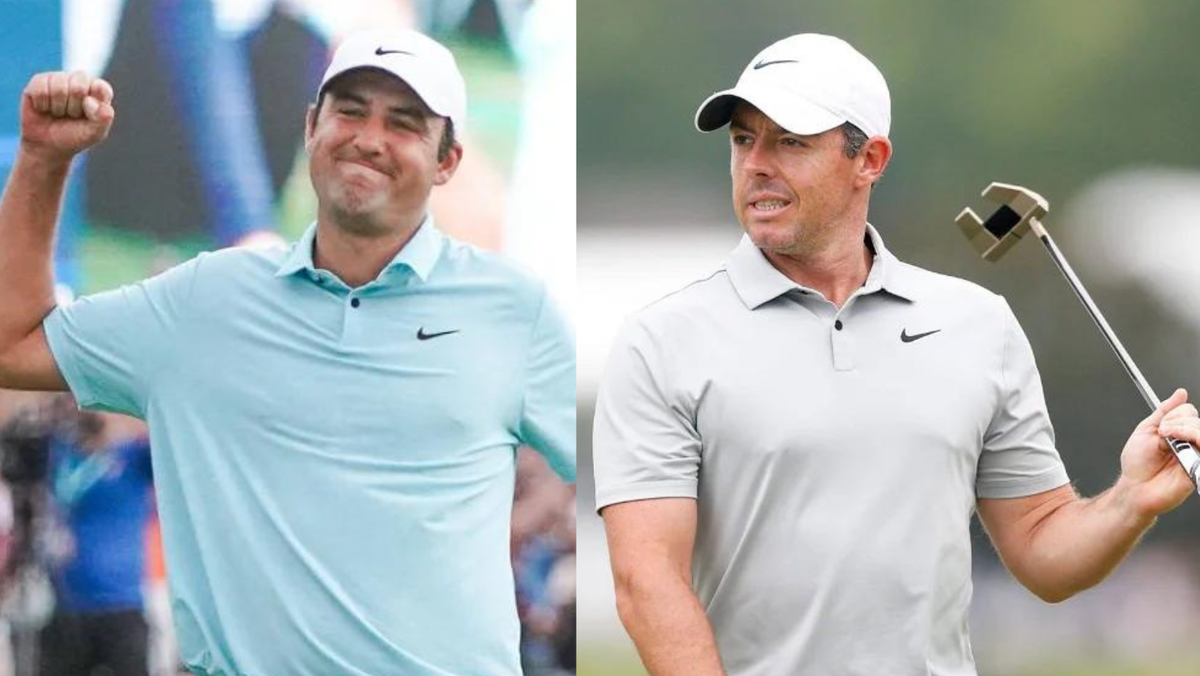
Imago
Image Courtesy: IMAGO

Imago
Image Courtesy: IMAGO
Week after week, PGA Tour events unfold with pristine fairways, immaculately rolled greens, and meticulously controlled scoring conditions. But beneath that polished surface, a tension is building—one that cuts to the core of what makes professional golf worth watching. Some players demand fairness and predictability. Many fans, meanwhile, are craving risk, mess, and the thrill of players on the edge. That disconnect—between controlled competition and compelling drama—is quietly becoming one of the Tour’s biggest liabilities.
Watch What’s Trending Now!
The problem, say critics, isn’t that players like Scottie Scheffler or Rory McIlroy prefer tough-but-fair courses. It’s that the Tour’s setup philosophy has become so centered on pleasing the top tier of pros that it’s edging out the very chaos and variety that keeps fans engaged. Events are starting to blend together—same type of courses, same type of outcomes, same handful of stars contending. The sport may be as skill-based as ever, but the sense of unpredictability is shrinking. And for audiences, that’s a problem.
That concern was laid bare this week during a candid episode of the Fried Egg Golf podcast, where Andy Johnson and Brendan Porath called on new PGA Tour CEO Brian Rolapp to shake things up. “It keeps the players happy, is like the main constituent that they’re worried about, is the players,” Johnson said. “The constituent that they should be most worried about is the fans.” Both of them pointed to a Tour setup system that prioritizes player satisfaction over viewer engagement. With overly sanitized venues, rigid course setups, and an apparent reluctance to allow environmental variables to dictate outcomes, the Tour has veered toward predictability.
Big Win For The Course: Oakmont Has Scottie Scheffler Slamming Clubs, Looking Disheveled On The Range And Trying To Figure His Game Out https://t.co/zRVijE9W51 pic.twitter.com/UG9oB7kyw1
— Barstool Sports (@barstoolsports) June 13, 2025
According to Johnson, the safe approach has one clear downside: fans want drama, not polish. “They want to see players overcoming obstacles, and the Tour’s whole setup philosophy runs counter to that, because they’re trying to keep the players happy,” he explained. “And that’s, like, a major issue that I’d love to see Brian Rolapp look into.” Porath did concede that Rolapp, who officially steps into the role this fall, appears open to making changes: “Yeah, he cares about it. And it seems like he will.”
Still, the balancing act is tricky. Porath acknowledged that even bold changes must respect competitive integrity: “But at the end of the day, he wants, you know, some guardrails there, right? Good shots rewarded.” That balance—between chaos and credibility—is exactly where the debate turns to the game’s current World No. 1.
What Scheffler wants: A proper test, not a circus
Scottie Scheffler has made his stance clear throughout 2025: he isn’t opposed to tougher conditions, but he wants them to be fair. After a frustrating U.S. Open round that featured multiple mudballs and pin placements bordering on unplayable, Scheffler argued for standards that test skill without dipping into randomness. “The setup should reward good shots and penalize bad ones,” he told reporters at Oakmont. “That’s the game we’re playing.”
Scheffler’s concerns have gained traction, especially after a season filled with weather-affected conditions and inconsistent rulings. At events like the PGA Championship and even the Players, players battled not just the course but unpredictable setup elements that occasionally felt arbitrary. While fans love to see players battle adversity, Scheffler and many of his peers believe that adversity should come from the course design, not from artificial or unfair variables.
He’s not alone. Players like Collin Morikawa and Patrick Cantlay have echoed his stance, saying the Tour needs to protect the integrity of competition, not just create TV moments. Still, Scheffler’s comments underscore the wider conversation: how does the Tour evolve without alienating its stars? As Johnson and Porath suggest, it’s now up to Brian Rolapp to find that answer.


